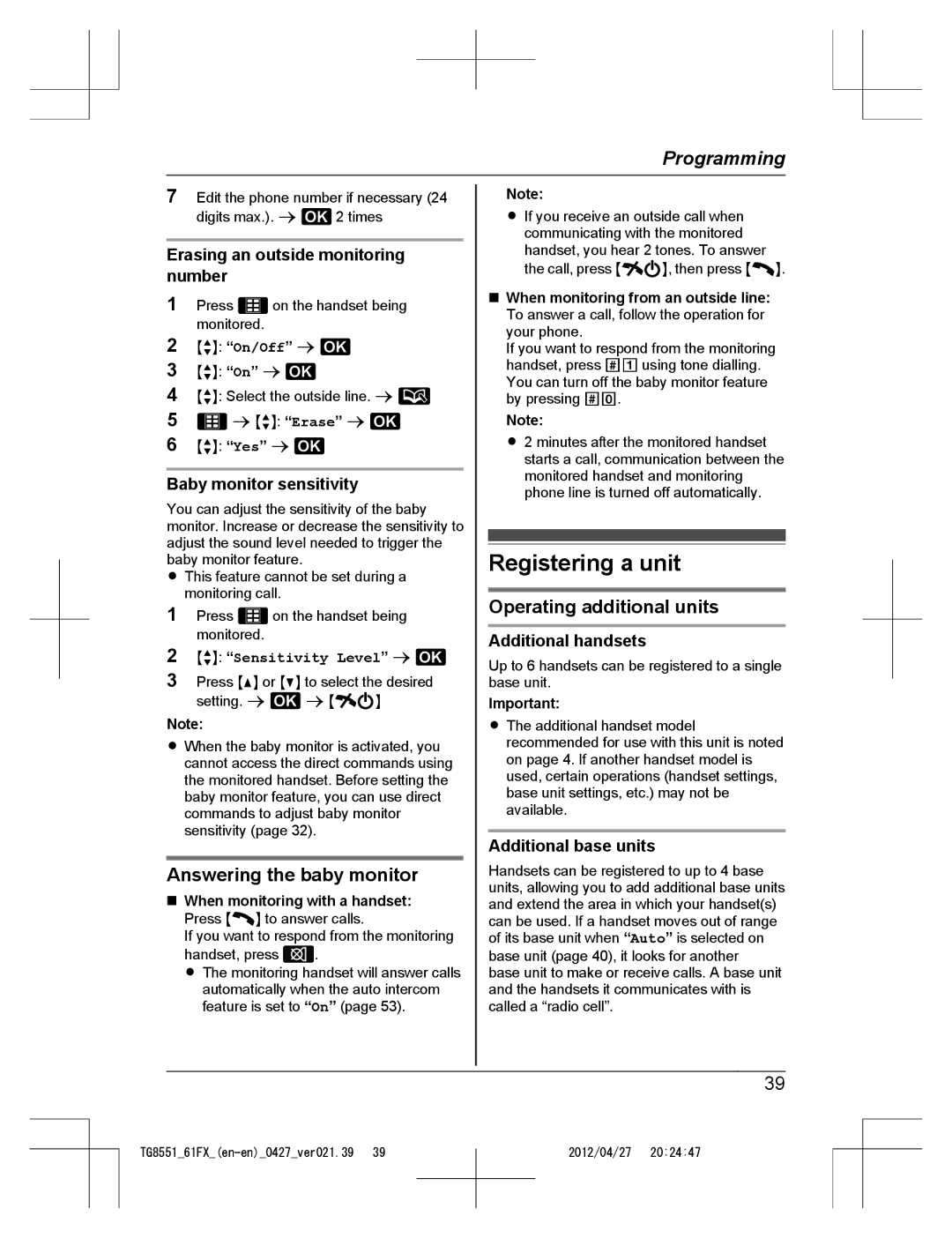
Programming
7Edit the phone number if necessary (24
digits max.). a ![]() 2 times
2 times
Erasing an outside monitoring number
1Press ![]() on the handset being monitored.
on the handset being monitored.
2MbN: “On/Off” a ![]() 3 MbN: “On” a
3 MbN: “On” a ![]()
4 MbN: Select the outside line. a ![]()
5![]() a MbN: “Erase” a
a MbN: “Erase” a ![]() 6 MbN: “Yes” a
6 MbN: “Yes” a ![]()
Baby monitor sensitivity
You can adjust the sensitivity of the baby monitor. Increase or decrease the sensitivity to adjust the sound level needed to trigger the baby monitor feature.
RThis feature cannot be set during a monitoring call.
1Press ![]() on the handset being monitored.
on the handset being monitored.
2MbN: “Sensitivity Level” a 
3Press MDN or MCN to select the desired
setting. a ![]() a M
a M![]()
![]() N
N
Note:
RWhen the baby monitor is activated, you cannot access the direct commands using the monitored handset. Before setting the baby monitor feature, you can use direct commands to adjust baby monitor sensitivity (page 32).
Answering the baby monitor
nWhen monitoring with a handset: Press M![]() N to answer calls.
N to answer calls.
If you want to respond from the monitoring
handset, press  .
.
R The monitoring handset will answer calls automatically when the auto intercom feature is set to “On” (page 53).
Note:
RIf you receive an outside call when communicating with the monitored handset, you hear 2 tones. To answer
the call, press M![]()
![]() N, then press M
N, then press M![]() N.
N.
nWhen monitoring from an outside line: To answer a call, follow the operation for your phone.
If you want to respond from the monitoring handset, press #1 using tone dialling. You can turn off the baby monitor feature by pressing #0.
Note:
R 2 minutes after the monitored handset starts a call, communication between the monitored handset and monitoring phone line is turned off automatically.
Registering a unit
Operating additional units
Additional handsets
Up to 6 handsets can be registered to a single base unit.
Important:
RThe additional handset model recommended for use with this unit is noted on page 4. If another handset model is used, certain operations (handset settings, base unit settings, etc.) may not be available.
Additional base units
Handsets can be registered to up to 4 base units, allowing you to add additional base units and extend the area in which your handset(s) can be used. If a handset moves out of range of its base unit when “Auto” is selected on base unit (page 40), it looks for another base unit to make or receive calls. A base unit and the handsets it communicates with is called a “radio cell”.
39
2012/04/27 20:24:47
